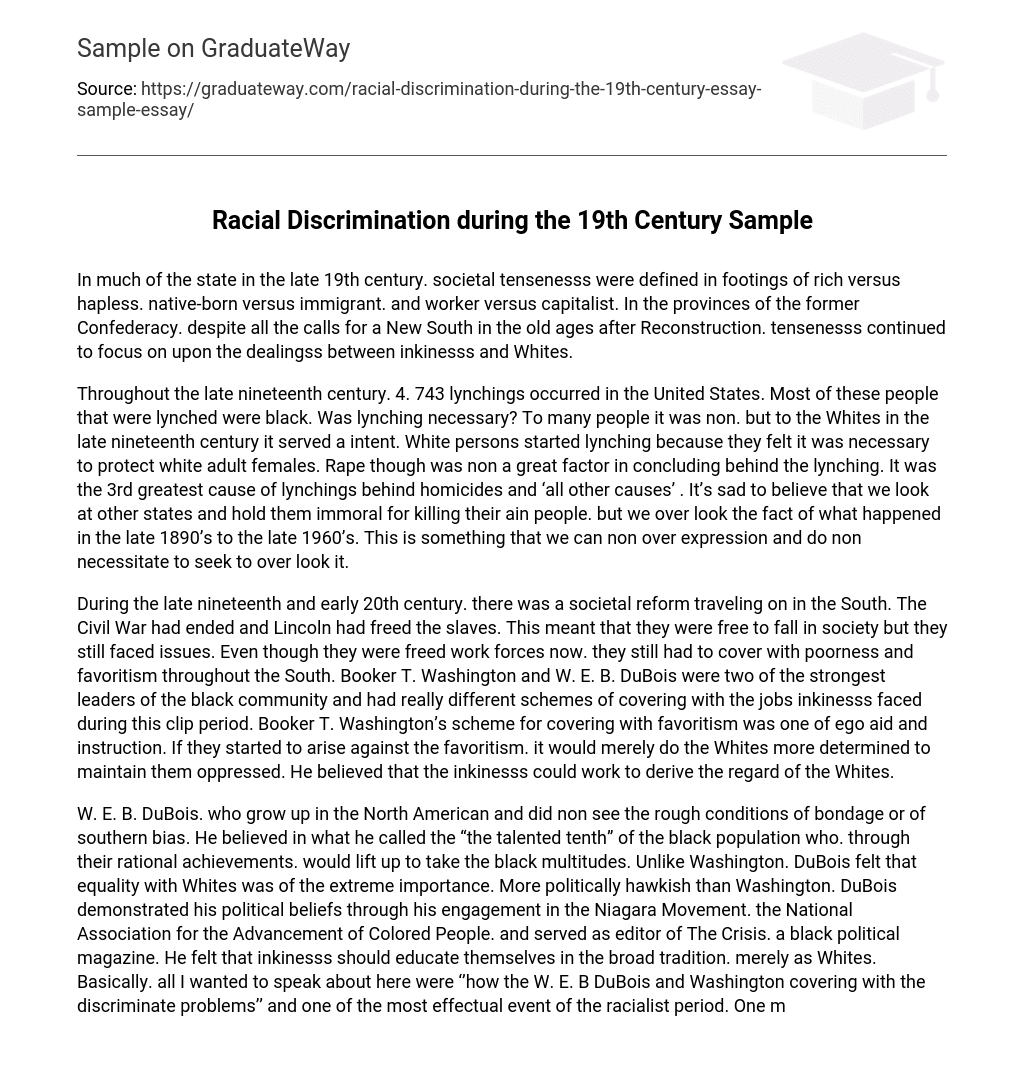In much of the state in the late 19th century. societal tensenesss were defined in footings of rich versus hapless. native-born versus immigrant. and worker versus capitalist. In the provinces of the former Confederacy. despite all the calls for a New South in the old ages after Reconstruction. tensenesss continued to focus on upon the dealingss between inkinesss and Whites.
Throughout the late nineteenth century. 4. 743 lynchings occurred in the United States. Most of these people that were lynched were black. Was lynching necessary? To many people it was non. but to the Whites in the late nineteenth century it served a intent. White persons started lynching because they felt it was necessary to protect white adult females. Rape though was non a great factor in concluding behind the lynching. It was the 3rd greatest cause of lynchings behind homicides and ‘all other causes’ . It’s sad to believe that we look at other states and hold them immoral for killing their ain people. but we over look the fact of what happened in the late 1890’s to the late 1960’s. This is something that we can non over expression and do non necessitate to seek to over look it.
During the late nineteenth and early 20th century. there was a societal reform traveling on in the South. The Civil War had ended and Lincoln had freed the slaves. This meant that they were free to fall in society but they still faced issues. Even though they were freed work forces now. they still had to cover with poorness and favoritism throughout the South. Booker T. Washington and W. E. B. DuBois were two of the strongest leaders of the black community and had really different schemes of covering with the jobs inkinesss faced during this clip period. Booker T. Washington’s scheme for covering with favoritism was one of ego aid and instruction. If they started to arise against the favoritism. it would merely do the Whites more determined to maintain them oppressed. He believed that the inkinesss could work to derive the regard of the Whites.
W. E. B. DuBois. who grow up in the North American and did non see the rough conditions of bondage or of southern bias. He believed in what he called the “the talented tenth” of the black population who. through their rational achievements. would lift up to take the black multitudes. Unlike Washington. DuBois felt that equality with Whites was of the extreme importance. More politically hawkish than Washington. DuBois demonstrated his political beliefs through his engagement in the Niagara Movement. the National Association for the Advancement of Colored People. and served as editor of The Crisis. a black political magazine. He felt that inkinesss should educate themselves in the broad tradition. merely as Whites. Basically. all I wanted to speak about here were ‘’how the W. E. B DuBois and Washington covering with the discriminate problems’’ and one of the most effectual event of the racialist period. One more thing that I would wish to add to this presentation. racialist is non something that we merely look over. but we have to make something with it. The universe wants differences.





